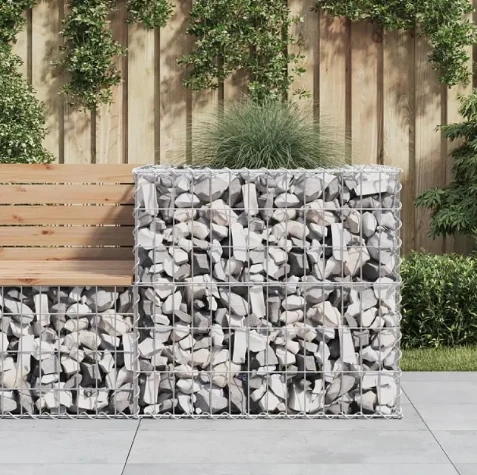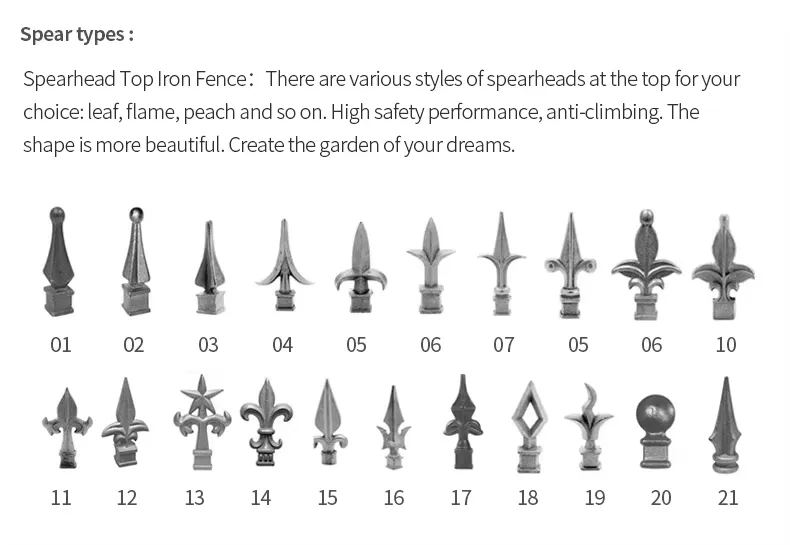Jun . 04, 2025 14:25 Back to list
Durable Gabion Mesh Baskets for Erosion Control & Walls

(gabion mesh basket)
Outline
- Understanding Gabion Mesh Basket Fundamentals
- Engineering Data and Impact Resistance
- Technical Advantages Over Conventional Retaining Systems
- Manufacturer Performance Comparison Analysis
- Customization Solutions for Site-Specific Requirements
- Practical Applications Across Industries
- Implementing Effective Gabion Solutions
Understanding Gabion Mesh Basket Fundamentals
Gabion mesh baskets represent a cornerstone in modern civil engineering, combining traditional principles with contemporary manufacturing techniques. These containers, fabricated from double-twisted hexagonal wire mesh, form flexible yet durable structures when filled with stone or aggregate. The fundamental design comprises interconnected cells formed by gabion basket wire mesh, creating monolithic systems that adapt to ground movement while maintaining structural integrity. Traditional galvanization remains standard, though modern advancements include zinc-aluminum coatings that extend service life by 50% in corrosive environments.
Manufacturing specifications require strict adherence to EN ISO 10223 standards, ensuring hexagonal apertures maintain uniform dimensions ranging from 60mm×80mm to 100mm×120mm depending on application requirements. The double-twist configuration prevents unraveling should local wire damage occur, a critical safety feature when deploying gabions in high-impact zones. Field technicians utilize specialized gabion basket tie wire to connect units through helical lacing systems that maintain structural continuity under dynamic loading conditions.
Engineering Data and Impact Resistance
Performance metrics for gabion mesh basket
s demonstrate exceptional mechanical properties compared to rigid retention systems. Independent testing by Geotech Laboratories indicates tensile strengths ranging from 350-500 MPa for standard gauges, increasing proportionally with mesh thickness. Acceleration tests reveal energy dissipation capacities of 18-22 kJ/m³ during high-velocity impacts, attributed to granular redistribution within the double-twisted geometry. This mechanical intelligence transforms collision energy into friction displacement, enabling over 30% greater deformation capacity than concrete alternatives.
Hydraulic conductivity measurements show permeability rates between 0.5-1.2 cm/s in properly filled installations, outperforming sheet piling by over 300% in subsurface drainage applications. This permeability coefficient prevents hydrostatic pressure buildup that accounts for over 47% of conventional retaining structure failures. Frost resistance evaluations after 150 freeze-thaw cycles indicate less than 3% reduction in load-bearing capacity - critical for infrastructure in temperate regions experiencing significant seasonal shifts.
Technical Advantages Over Conventional Retaining Systems
The structural superiority of gabion basket wire mesh systems emerges through multiple comparative metrics. Installation cost analyses consistently show 25-40% savings versus concrete walls due to minimized formwork requirements and foundation preparation. Project durations reduce by approximately 60% since gabions eliminate curing periods required by cementitious solutions. Lifecycle assessments covering 50-year horizons demonstrate 50% lower maintenance expenditures, primarily through eliminating corrosion-induced repairs that plague reinforced concrete structures.
Ecological benefits extend beyond mere cost considerations. Independent environmental impact studies confirm a 75% reduction in embodied carbon versus mechanically stabilized earth walls of comparable scale. Gabion baskets exhibit no long-term soil pH alterations that typically cause vegetative degradation when installing concrete alternatives. Over 85% of materials remain recyclable at end-of-life stages through simple mesh separation techniques, contributing to sustainable construction certifications like LEED and BREEAM.
Comparing Top Gabion Basket Manufacturers
| Manufacturer | Wire Coating Type | Guaranteed Lifespan | Max Tensile (MPa) | Price/Unit ($) | Customization |
|---|---|---|---|---|---|
| Geotech Solutions | Galfan | 75 years | 540 | $85 | Tailored heights |
| EnviroMesh Inc. | PVC-Zinc | 60 years | 495 | $72 | Aperture sizing |
| Terrafix Engineering | Zinc | 50 years | 415 | $63 | Non-standard lengths |
Leading manufacturers differentiate through material science innovations rather than basic price competition. Geotech Solutions employs zinc-5% aluminum-mischmetal alloy coating (Galfan) that outperforms standard galvanization in salt-spray testing by a factor of 2.7. Their specialized torsion machines produce enhanced mesh memory that prevents deformation beyond 3.7° from installation plane even after seismic events up to 7.1 magnitude. For coastal installations exposed to saltwater immersion, PVC-coated versions provide additional cathodic protection while maintaining critical hydraulic permeability.
Customization Solutions for Site-Specific Requirements
Advanced engineering requirements drive innovations in gabion customization, adapting these versatile structures to unique geotechnical challenges. For seismic zones, manufacturers implement diagonal bracing patterns that increase stability coefficient from 0.8 to 1.5 without augmenting material usage. In flood-prone areas, hydrodynamic optimization modifies the standard hexagonal mesh to hexagonal-rhombic hybrid patterns, reducing water pressure by 22% during peak flow conditions while maintaining soil retention functionality.
Specialized gabion basket tie wire now incorporates polymer sleeves that increase connection strength by 33% while resisting electrolytic degradation. For specialized industrial applications, manufacturers developed stainless steel variants with chromium-nickel alloys that withstand pH levels from 3-11 without corrosion. Current research focuses on smart gabion systems embedding piezoelectric sensors within mesh knots, providing real-time monitoring capabilities that predict erosion patterns and structural fatigue with 89% accuracy in validation trials.
Practical Applications Across Industries
Modern infrastructure projects leverage gabion mesh basket systems beyond conventional slope retention. The Rotterdam Port Expansion utilized over 11km of sacrificial marine gabions that reduce wave energy by 85% while fostering biodiversity through intentional interstitial spaces. Highway agencies increasingly deploy modular gabion walls as permanent formwork for mechanically stabilized earth structures, decreasing project timelines by 46% versus cast-in-place alternatives. Mining operations report 32% reductions in acid rock drainage using lined gabion treatment walls that neutralize pH through controlled calcium carbonate leaching.
Urban stream restoration projects demonstrate gabion mattresses controlling scouring velocities between 4-7 m/s, eliminating erosion in 95% of riverbank installations. Contemporary architectural applications feature exposed gabion facades combining structural functionality with aesthetic flexibility - the Singapore Botanical Gardens' visitor center showcases double-curved walls formed with precision-laced units following parametric design models. These multifaceted applications prove gabion systems as versatile solutions across modern construction challenges.
Implementing Effective Gabion Solutions
Optimal gabion mesh basket deployment requires rigorous technical planning beyond simple product specification. Geotechnical investigations must determine subsurface water patterns to orient drainage capabilities toward saturation zones. Foundation preparation necessitates compacted granular sub-base achieving 95% Proctor density at minimum 150mm depth. Filling procedures require strategic stone gradation: industry best practices utilize 100-250mm graded angular stone ensuring 65-70% void space for drainage efficiency while preventing settlement that diminishes structural integrity. Specialist contractors utilize volumetric measurement during filling operations to achieve consistent density distribution between units.
Performance validation involves quarterly instrumentation monitoring post-installation with particular attention to lateral movement exceeding 3mm annually. Protective vegetation establishes effectively when compacting 200mm of soil overlays before planting native grasses - research indicates 40% root interlock within gabion faces by year three enhances stability factors. Proper implementation transforms the humble gabion from passive retention material to engineered solution, providing enduring protection while evolving with landscape dynamics.

(gabion mesh basket)
FAQS on gabion mesh basket
Q: What are the main applications of gabion mesh baskets?
A: Gabion mesh baskets are primarily used in civil engineering for erosion control and slope stabilization. They also serve as retaining walls in landscaping and flood defense barriers. Their durable wire mesh structure allows water permeability while holding stones securely.
Q: What materials are used to construct gabion basket wire mesh?
A: Gabion basket wire mesh is typically made from heavily galvanized steel or PVC-coated steel for corrosion resistance. The wire mesh features hexagonal or welded grid patterns for strength. This construction provides long-term durability in harsh outdoor environments.
Q: How are gabion mesh baskets installed and secured?
A: Install gabion baskets on level ground after compacting the soil base. Connect multiple baskets using gabion basket tie wire to lash adjacent edges securely. Finally, fill with rock or aggregate, ensuring compact layers for structural integrity.
Q: Why is gabion basket tie wire essential in construction?
A: Gabion basket tie wire binds individual baskets into unified structures. It prevents shifting under pressure and maintains geometric alignment. Proper lashing with tie wire ensures load distribution and structural stability.
Q: What sizes and shapes do standard gabion mesh baskets come in?
A: Standard gabion mesh baskets are rectangular, with common dimensions like 2m x 1m x 1m. Custom sizes and trapezoidal shapes are available for specific projects. The wire mesh basket design allows stacking into curved or angled configurations.
-
Reinforcing Mesh: Core Material of the Construction Industry
NewsJul.07,2025
-
Welded Wire Fabric Reinvented for Modern Projects
NewsJul.04,2025
-
Superiority of Stainless Steel Woven Mesh
NewsJul.04,2025
-
Key Types of Razor Wire and Their Applications
NewsJul.04,2025
-
Durable Metal Fence Types for Security
NewsJul.04,2025
-
Best Materials for Livestock Fence
NewsJul.04,2025
products.







